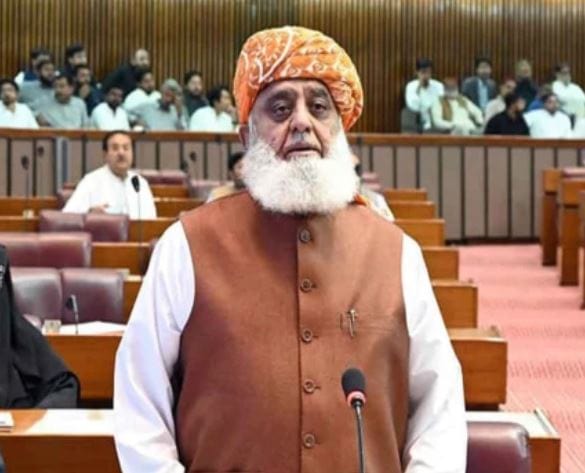ISLAMABAD –The federal government itself is the biggest obstacle in the way of Madrassas’ bill and their registration, said Jamiat Ulema-e-Islam-Fazl (JUI-F) Chief Maulana Fazlur Rehman said on Tuesday.
The JUI-F chief said that while they did have the concerns about the public representation in this house, at the same time, the parliament is fulfilling its parliamentary responsibilities.
“We are also part of this house,” said Maulana Fazlur Rehman while speaking on the floor of the National Assembly.
Fazl said previously, both houses of Parliament passed the 26th constitutional amendment, which was understood to be agreed upon with the consensus.
“All parties, both in the government and opposition benches, were on board, although the major opposition party distanced itself from it, and the negotiation process lasted for a considerable period,” said the JUI-F chief.
He said this is how the politics worked—the negotiations took place, both sides needed try to understand each other, explain their points with arguments, and then the issue moved toward a solution.
The questions about the religious seminaries, he said, were raised in 2004, and after negotiations on these questions, legislation was passed.
It was said that the religious seminaries would ensure they did not present extremist content. The intelligence agencies used to visit seminaries directly, he added.
Fazl also mentioned that after that, in 2010, another agreement was made. In our view, the matters were settled, but then the 18th Amendment was passed. The government said that the seminaries would be registered under the Societies Act. The matter was discussed with the Ministry of Education, and talks continued. That Act was never passed, and it remained just an agreement.
He further stated that the first point was that the government would cooperate in the registration of new seminaries. There were also discussions about opening bank accounts for religious seminaries and granting 9-year visas to foreign students.










